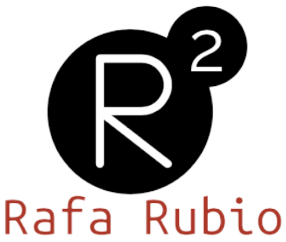During the last European Parliament elections in June, almost all different candidates around Europe turned to the Internet to engage voters in their own countries. The European Parliament didn´t want to be left out and launched a 2-2.5 millons euros three month internet campaign with the theme of “If you don´t vote don´t complain.” It was centered around websites like Ucount4EU, which featured information about the election and the roll that EP is playing in the lives of European citizens day to day; Can you hear me? in collaboration with MTV Networks International which focused on young Europeans ; and TellBarroso.eu where the President of the European Comission Durao Barroso asked for opinions about European challenges through an online poll.
But the most relevant project was the European Parliament’s effort to be present in different social networks. By this initiative the EP tried to engage citizens directly into the European project. Inspired by Obama´s campaign, the EP established outposts in MySpace and Facebook and developed three widgets for each. Through these three widgets the EP carried traffic to its own pages. The first one was an online poll, the second one allowed the user to personalize his own profile photo with the election logo as Obama did during the US Presidential election. And the third one enabled voters to build a profile with their electoral values. The EP also created its own presence in networks like YouTube, and Flickr. And a few days before the election the EP launched a Twitter profile (@EU_Elections_en) to follow the results all around Europe.
The results for the campaign were 50,000 fans in Facebook, 700 followers in Twitter, 9435 subscribers in Youtube, 3134 friends in Myspace and 3403 contacs in Flickr. EP officials called this a success, although they also acknowledged that it takes more time to develop a wider network.
In El Mundo, the journalist Aitor Hernández-Morales analyzed some of the mistakes of the EP’s social network campaign. According to some experts in Europe and the US, the idea was launched too late, only three months before the election day; it was mainly in English, in a region with 22 co-official languages; it didn´t show any interest for people´s opinion or any kind of bidirectional communication. About this issue, the lack of dialogue, essential in social networks, one of the officials argued that the EP mission was to give information and this is why they avoided any kind of dialogue or opinion. In addition, the social network campaign was very expensive, 324,000 euros (219.000 to develop the three widgets in MySpace and Facebook and 12.000 to adapt the Youtube page). But the main complaint, in my opinion, was the lack of human touch. All the content was about a cold institution with no signs of life, no actual Members of the EP participating, no staffers… It’s like a building speaking to you… in a very official way. Hence the limited results.
With all that said, the big news is that two months after the election day these new channels are still online and much more, the EP channels in Facebook and Youtube are growing and engaging more and more people, as you can see by the number of comments. Officials in the EP should consider a new phase for the next 5 years, with a slow but more intensive growth. They should increase people´s participation by bidirectional communication and by focusing in relevant events, with direct impact in people’s life. The Lisbon Treaty process, which is aimed at changing the structure of the EU, could be the first opportunity.


